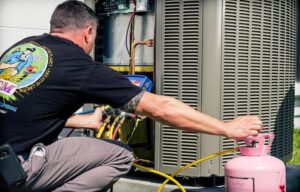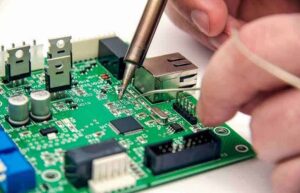
In today’s rapidly shifting hotel market, hotel owners need to increase both profits and efficiency, while still delivering great guest experiences. In this new environment, effective property management is a big part. However, translating property management ventures into effective practice is an intricate and multidimensional affair, as well as being sure these initiatives succeed in the long term takes directions from past mistakes. This piece will examine five crucial blunders that hotel owners should avoid when putting property management software into practice, offering insightful analysis and helpful pointers to help you successfully complete this challenging task.
1. Underestimating the Importance of Communication and Change Management
Undervaluing the significance of effective communication and change management techniques is one of the biggest mistakes hotel owners can make when implementing property management. Significant operational as well as cultural changes are frequently involved in the switch to a new property management strategy. If these changes are not effectively managed and communicated, they may be met with resistance or confusion.
Inadequate communication regarding the new property management approach’s benefits, reasoning, and expected changes may result in miscommunication, and low morale, along with ultimately, a lack of support from stakeholders and staff. This could then impede the new strategies’ effective adoption as well as application, impeding the intended results.
Hotel owners should pay special attention to being after all parties including staff, suppliers, and clients, if they want to avoid falling into this trap. So as to ensure that is a smooth handover and the new property management strategy can obtain broad acceptance, it is crucial to come up with an all-encompassing change programme: solve anxieties as well as instruct people, offer support and use examples of successful but their carry-over year-on-year has not made way for next challenge.
2. Neglecting to Align Technology with Strategic Objectives
In the current digital era, technology is essential for optimizing operations, improving visitor experiences, and increasing profitability in the hospitality sector. Nonetheless, a lot of hotel operators make the mistake of putting technology into place without first coordinating it with their strategic plans as well as property management objectives.
Investing in state-of-the-art technologies without fully comprehending how they will complement and work with the overall property management plan can result in resource waste, and duplication of effort, as well as inefficiencies. This disconnect may make it more difficult for data as well as information to flow freely, which could impede decision-making and ultimately reduce the efficacy of the property management strategy.
In order to steer clear of this blunder, hotel operators ought to carry out a comprehensive evaluation of their existing technology setup and pinpoint opportunities for enhancement or incorporation. By coordinating technology expenditures with their strategic aims in addition to property administration objectives, operators can harness the potential of technology to optimize functions, elevate visitor experiences, and yield quantifiable outcomes.
3. Failing to Prioritize Data-Driven Decision-Making
Effective property management now requires data-driven decision-making in the era of big data as well as sophisticated analytics. But a lot of hotel owners ignore the value of using data and analytics, depending instead on their intuition or antiquated procedures.
Making decisions without using data can result in poor decisions, and lost opportunities, in addition to inefficient use of resources. In the absence of precise and up-to-date data, hotel operators might find it difficult to recognize patterns, and foresee difficulties, as well as make well-informed choices about pricing policies, advertising campaigns, workforce requirements, and operational enhancements.
Hotel owners should make a investment in reliable data collection as well as analysis systems that offer up-to-date information on operational metrics, and guest preferences, along with market trends, as well as KPIs in order to avoid making this error. Hotel owners can boost operational efficiency, increase profitability, and improve guest satisfaction by adopting a data-driven approach to decision-making.
4. Overlooking the Importance of Employee Training and Development
Successful property management strategy implementation is largely dependent on the abilities, expertise, and dedication of the hotel staff. However, a lot of hotel owners undervalue the significance of giving their staff members thorough training in addition to opportunities for professional development, which can result in a lack of readiness and possible resistance to change.
Neglecting to provide staff with the abilities and information required to implement the new property management techniques may lead to inefficiencies, and unsatisfactory visitor experiences, as well as a lack of team support. High turnover rates can also result from underfunding employee development, which can further impede the implementation process and jeopardize the overall effectiveness of the property management strategy.
Hotel owners should give priority to staff development and training initiatives that complement the newest approaches to property management in order to steer clear of this pitfalls. Possabilities include workshops, in-the-work training, and mentorship programs, as well as continuous professional development opportunities. In addition, a little theory hotel owners can use this method to bring about changes; by unfolding within the sphere of PMS type hotels a culture of learning that never stops, they can be confident in achieving sensational results.
5. Disregarding the Importance of Continuous Monitoring and Adjustment
The application of property management techniques is a continuous process that needs constant observation as well as modification rather than a one-time occurrence. A common error made by hotel owners is to believe that the property management strategy can stay unchanged after the first phase of implementation is finished.
Stagnation, lost opportunities, along with an inability to adjust to shifting market conditions, visitor preferences, and industry trends can result from failing to regularly monitor and modify property management strategies. This oversight may ultimately compromise the property management strategy’s efficacy as well as making it more difficult for the hotel to maintain its profitability and competitiveness.
Hotel owners should set up a strong system for tracking key performance indicators, getting input from stakeholders, and examining market as well as industry trends in order to avoid making this error. Hotel owners can guarantee that their approach to property management stays relevant, efficient, and capable of producing long-term results by being watchful along with making proactive adjustments in response to changing conditions.
Conclusion
A hotel management software strategy’s implementation is a difficult task that calls for thorough planning, clear communication, and a dedication to ongoing improvement. Hotel owners can greatly increase their chances of achieving long-term success by avoiding the five critical mistakes outlined in this article: undervaluing the significance of communication in addition to change management; failing to prioritize data-driven decision-making; failing to align technology with strategic objectives; as well as overlooking the importance of employee training and development as well as the need for continuous monitoring and adjustment.







